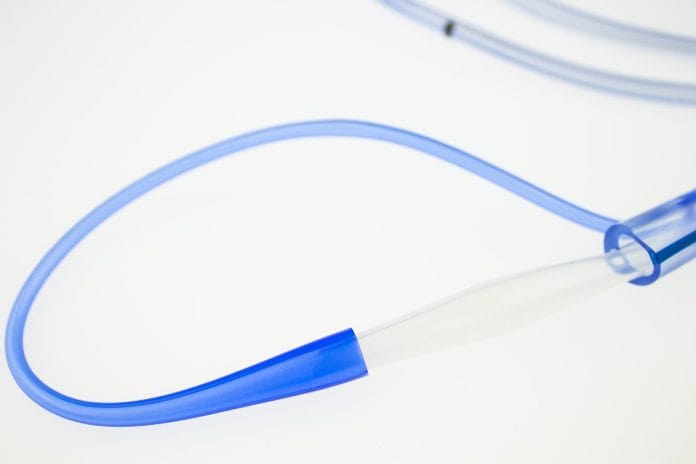TABLE OF CONTENTS
By Kevin Skole, MD
Did you know that your digestive tract is nearly 30-feet long, from your mouth to your rectum?
That’s about half the length of a bowling lane or as long as two mid-size SUVs bumper-to-bumper.
In other words, it’s long.
So, when it comes to diagnosing and treating diseases of the digestive tract, board certified gastroenterologists at the Center for Digestive Health at Penn Medicine Princeton Medical Center (PMC) rely on advanced endoscopic tools and techniques — including capsule endoscopy — that can see hard-to-reach areas.
What is Endoscopy?
Endoscopy is a safe and effective procedure that uses a thin flexible tube with a tiny camera and light at its tip to examine the inside of a person’s body.
In digestive medicine, the endoscope is inserted into the mouth or rectum, passes through the esophagus or intestines and takes images of the gastrointestinal (GI) tract, which includes the mouth, esophagus, stomach, small intestine, large intestine, rectum and anus.
An upper endoscopy examines the upper part of the (GI) tract, including the esophagus, stomach and beginning part of the small intestine.
A colonoscopy, on the other hand, is an endoscopy of the colon and rectum, most commonly used to screen for colon cancer and precancerous polyps.
But neither upper endoscopy nor colonoscopy can examine the entire small intestine, which makes up the majority of the digestive tract, measuring approximately 20 to 25 feet.
That’s where capsule endoscopy comes in.
What is Capsule Endoscopy?
Capsule endoscopy is a wireless technology used to readily explore regions of the small intestine that cannot easily be seen by other types of GI endoscopy procedures.
The capsule, no larger than a vitamin pill, contains a tiny camera, light, battery and radio transmitter that is encased in a tiny plastic shell.
The patient swallows the capsule, and as the capsule descends through the digestive tract, pictures are taken and recorded on a sensor device that the patient wears on their abdomen for approximately eight to 12 hours.
At the end of the process, the capsule is passed naturally and painlessly during a bowel movement.
The images retrieved from the recorder are then reviewed by the patient’s gastroenterologist and can reveal evidence of a number of GI disorders and diseases.
Why is Capsule Endoscopy Used?
Capsule endoscopy is particularly useful in identifying abnormalities in the small intestine that are otherwise unable to be detected without invasive testing.
Most people are first referred for a capsule endoscopy because they have been diagnosed with anemia or an iron deficiency that cannot be explained.
It is also helpful in the diagnosis and monitoring of conditions like Crohn’s disease, an inflammatory bowel disease that primary affects the small intestine.
In addition, capsule endoscopy may be considered to look for any number of the following:
- Obscure gastrointestinal bleeding
- Cancer
- Celiac disease
- Small bowel ulcers
- Polyps
- Malabsorption syndromes
Capsule endoscopy is also employed to assess the effectiveness of treatments and interventions for conditions affecting the small intestine.
What Should You Expect?
To prepare for a capsule endoscopy, patients will likely be instructed not to eat or drink for approximately 12 hours prior to the procedure to ensure the bowels are clear.
In some instances, partial bowel cleansing may also be recommended.
The capsule is ingested in the doctor’s office. Once the patient swallows the capsule, they can go about their day and carry out their normal activities, though they are advised not to exercise during the test period and to eat and drink lightly.
After the procedure, which is painless, patients may exercise and resume a regular diet. The camera capsule is disposable and passes painlessly and naturally during a bowel movement, typically within 24 to 48 after the procedure.
Capsule endoscopy is proven to be a safe, non-invasive, reliable diagnostic test. However, in rare instances, the capsule can become lodged inside the body, which may require surgery to have it removed. The doctor may do some testing before the capsule study to minimize the risk of this happening.
When to See a Doctor
Symptoms of GI disease can range from mild to severe and vary depending on the condition. In general, see your doctor if you have any of the following that can be associated with GI disease:
- Change in bowel habits, including persistent diarrhea or constipation
- Rectal bleeding or blood in stool
- Abdominal pain and cramping
- Nausea and vomiting
- Unintended weight loss
- Unexplained fatigue
- Reduced appetite
- Depression
The Center for Digestive Health at PMC offers comprehensive GI services that include advanced diagnostics, endoscopic therapies and advanced minimally invasive surgical procedures, along with advanced endoscopic procedures, to aid in the detection and treatment of GI disease.
The Center has earned recognition from the American Society of Gastrointestinal Endoscopy (ASGE) as a unit that promotes quality in endoscopy. The ASGE Endoscopy Unit Recognition Program honors facilities that have demonstrated a commitment to specialized training and adherence to ASGE guidelines on privileging, quality assurance and reprocessing, as well as the infection control guidelines of the Centers for Disease Control and Prevention.
To find a gastroenterologist with the Center for Digestive Health at PMC, call (888) 742-7496 or visit www.princetonhcs.org.
Kevin Skole, MD, is board certified in gastroenterology and internal medicine. He is a member of the medical staff at Penn Medicine Princeton Health.


